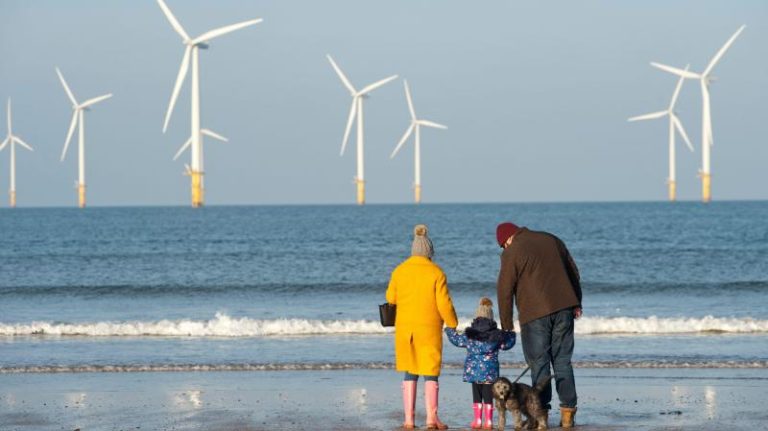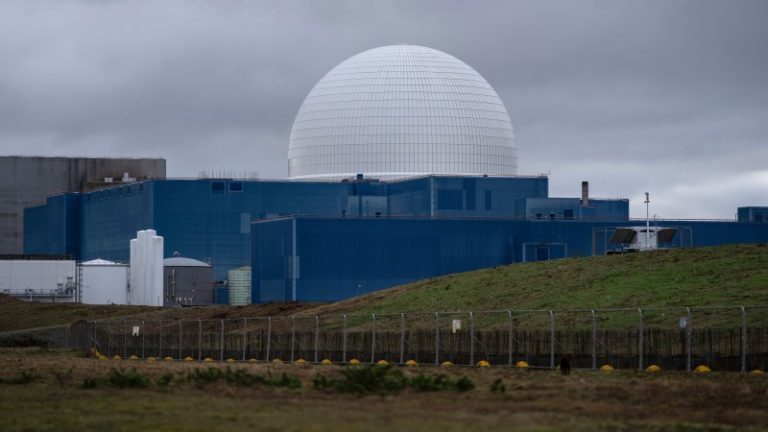EY in the dock over Britishvolt’s sale to Recharge
The site of the former power station at Blyth, Northumberland, is not much to look at, but the future of this windswept expanse of cleared rubble and scrubland is hotly contested. This was to be home to a £4 billion gigafactory, making hundreds of thousands of car batteries each year, under the auspices of a start-up called Britishvolt.
The company wanted to make the UK a leader in a burgeoning part of the car industry, but it collapsed in January after running out of money. Administrators at EY sold its assets to Australian company Recharge Industries, but were left red faced when Recharge failed to stump up the money. Now questions are being asked about EY’s handling of the case. As the sale drags on, can it dig itself out of a hole?
From the start, EY’s role was controversial. The firm was an adviser to Britishvolt and ended up being owed about £4 million. As administrator, it has a statutory duty to recover as much money as possible for creditors, which include the mining giant Glencore. While it is not against the rules to be both a creditor and an administrator, industry sources said the level of EY’s involvement prior to Britishvolt’s collapse raised the likelihood of a potential conflict, as it would have to investigate the actions of former directors it advised. “This case looks a bit stinky,” said one source.
According to multiple sources, while acting as Britishvolt’s adviser, EY urged the company to hire more people to make it look credible when applying for government grants. Britishvolt’s bloated payroll was later cited as one reason for its collapse. An insolvency practitioner said: “If you’ve signed off the business plan and that plan has failed, and then you profit from becoming the office holder in the insolvency, is there not a conflict of interest?”
Sources close to EY suggested its advice was given alongside other advisers and it was predicated on the start-up securing funding — which it did not. As administrator, EY has said it will not vote on any creditor resolutions that it proposes, to avoid any potential conflicts.
But its problems do not end there. In February, it announced a deal to sell Britishvolt to Recharge, a battery maker led by a former PwC professional services partner from Australia, David Collard. Recharge promised to pay £8.57 million, a fraction of the $774 million at which Britishvolt was once valued.
Few people had even heard of Recharge, which was spun out of another company founded by Collard, called Scale Facilitation. Fewer still knew much about Collard. His expertise in battery making began to look questionable when The Sunday Times reported that his only previous ventures appeared to be selling PPE and registering a string of cannabis companies. His “chief of staff”, meanwhile, used to own a fish and chip shop near Melbourne.
In June, it emerged that another Scale Facilitation subsidiary had been raided by the Australian Taxation Office. Collard’s staff in the US and Australia have since quit in droves because of his failure to pay their wages. One insider in the UK said its British staff had also gone unpaid in the past two months. Recharge did not respond to a request for comment. Collard has since been sued over unpaid rent on his New York apartment, and this month American Express filed a lawsuit chasing him over a $776,000 credit card bill.
It is perhaps no surprise, then, that Recharge missed its final payment on Britishvolt, as the administrator’s report in August revealed. The Australian buyer disputed that it was in default, but the sale has not completed.
All of which begs the question: just how much due diligence did EY do on its buyer? According to Tim Cooper, vice-president of the R3 trade body, typical checks include “looking at the structure of the buyers [and at] public data about them … their position in the market, their credibility. Funding is paramount — have they got the money?” Usually, administrators would ask for a letter from a reputable bank.
EY’s choice of Collard left some rivals bemused. One bidder, who was beaten in the contest because they offered less than Recharge, said: “Why do they keep giving Collard more time?”
Another potential buyer had some sympathy for EY: “Britishvolt was extremely challenged, and in the end, probably nobody wanted it except this Australian guy.”
EY said it “ran a thorough and competitive sales process” and that £6.1 million had been received from Recharge’s partial payment. “This … was materially above the next best alternative,” it said. An insolvency source said this would help EY prove it had done its statutory duty. But they noted that EY’s fees are at least £400,000 higher than expected partly because of the complexity of chasing Recharge for money.
Where does the sale go from here? “You could go back to any other bidders, although I expect you’d get a pretty dusty response,” said one insolvency expert. EY said “discussions are ongoing” and that it would “review all options to deliver the best outcome for creditors”.
The bigger problem may be that there is little value in the assets Recharge has bought. The real prize is the land, thought to be the only site in the country with planning permission for a gigafactory and an agreement to connect to undersea power from Norway. But the land is mortgaged to a separate firm, and Northumberland council has the right to buy it back next year.
Any new buyer would need to win over the council, which is desperate to bring high-paying jobs to the region but has been burnt by its experience so far. Central government is also taking an active interest.
Such political pressure only complicates matters for EY. “If they’ve got their audit trail as to why they made these decisions at the time, [they will be OK],” said Cooper. “But it’s an unhappy position that no one would want to be in.”
EY has lined up another firm, RSM, to handle any liquidation of the company. Such an outcome may help unblock the future of the Blyth site, and help EY make its exit from a case that it would rather forget.






